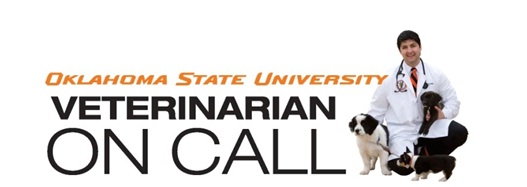Veterinarian on Call- Pet Safety Tips for winter weather
Tuesday, February 8, 2011
During winter weather what should I do different, if anything, for my pets?
When temperatures are freezing, it is best to keep your pets indoors. If your pet is an “outdoor” animal, it is important to provide adequate shelter, water and food.
It is critical that outdoor pets have a shelter that is insulated and protected from the cold winter winds.
The shelter should be large enough for your pet to easily fit into. However, the smaller the shelter, the easier it is for the pet’s body heat to warm the house. The shelter should have a floor along with some type of bedding. The opening of the shelter should be protected by having it face away from the North with a flap covering the opening.
Water should be checked frequently to be sure it hasn’t frozen. It is ideal to serve the pet warm water several times during the day.
Your pet will need extra calories, therefore, more food to produce the body heat it needs to keep warm.
Even when you are entertaining guests, if your pet hasn’t been allowed to acclimate to the cold weather and doesn’t have a good heavy fur coat, it should not be left in the cold. In severe inclement weather, pets should be kept inside the home or in a heated facility.
Another winter weather hazard to avoid is animals that may climb under the hood of a vehicle for warmth. It could be a roaming cat, wildlife or your own pet that ventures inside to get warm. Be sure to check under the hood and honk your vehicle horn before starting up the engine.
During the winter months, walking with your pet is a great way for both of you to exercise. If you walk on pavement that has been treated with a chemical to melt ice, wash the pet’s paws thoroughly. After walking or playing with your pet in the snow, remove any ice and snow from between its toes.
Frostbite is not a common problem in animals that are healthy, well-nourished and acclimated to cold weather. If frostbite does occur, the tips of the ears or tail are the most common areas injured. If you think your pet is suffering from frostbite, cover the pet with warm towels and call your veterinarian immediately.
Antifreeze (ethylene glycol) poisoning is another winter hazard. To prevent antifreeze poisoning, use antifreeze with some type of embittering agent. This type of antifreeze is extremely offensive to taste both to people and pets. Non-toxic (does not contain ethylene glycol) antifreeze is also available.
Store all potential toxic substances up high and behind locked cabinets not accessible to children or animals. If you suspect your pet has consumed anti-freeze, contact your veterinarian immediately and/or the National Poison Control Center at 1-800-548-2423.
This column is provided by the faculty of the OSU Boren Veterinary Medical Teaching Hospital. The large volume of questions does not allow us to directly respond to specific email questions so please watch for your answer in the column. Email your questions for the column to dvmoncall@postoffice.cvhs.okstate.edu and watch for your answer.

